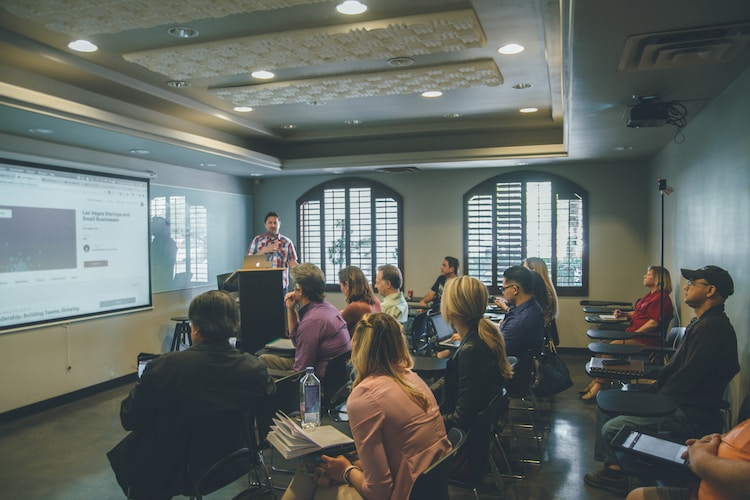
Education is a vital aspect of personal growth and development. It equips individuals with knowledge, skills, and critical thinking abilities necessary for success in various domains of life. However, not everyone excels in the educational realm, and sometimes it becomes evident that certain individuals struggle with their educational journey. In this article, we will explore 16 signs that indicate you may be facing challenges in your educational pursuits. By recognizing these signs, you can take proactive steps to overcome obstacles, improve your learning experience, and achieve academic success.

1. Lack of Motivation
One of the first signs that you may be struggling with education is a lack of motivation. If you find it difficult to stay engaged, feel apathetic towards learning, or have no clear goals, it’s a sign that you may be lacking the drive needed to excel in your educational endeavors.
2. Difficulty Concentrating
Another sign that you may be struggling with education is difficulty concentrating. If you find it challenging to focus on tasks, get easily distracted, or have a short attention span, it can hinder your ability to absorb information and retain knowledge.
3. Poor Time Management
Effective time management is crucial for academic success. If you frequently find yourself procrastinating, missing deadlines, or feeling overwhelmed by a lack of organization, it’s an indication that you may be struggling with managing your time effectively.
4. Inconsistent Study Habits
Consistency is key when it comes to education. If you have erratic study habits, such as cramming before exams, skipping regular study sessions, or failing to review material consistently, it can impede your ability to grasp complex concepts and retain information.
5. Lack of Critical Thinking Skills
Education goes beyond memorizing facts; it involves developing critical thinking skills. If you struggle to analyze information, evaluate evidence, or think critically about concepts, it’s a sign that you may need to enhance your critical thinking abilities.
6. Weak Test-Taking Skills
Tests and exams are a common assessment method in education. If you consistently perform poorly on exams, struggle with test anxiety, or have difficulty understanding exam questions, it suggests that you may need to improve your test-taking skills.
7. Limited Study Resources
Access to quality study resources is essential for effective learning. If you lack access to textbooks, online materials, or educational resources, it can hinder your ability to acquire knowledge and deepen your understanding of subjects.
8. Ineffective Note-Taking
Note-taking is a valuable learning tool. If your notes are disorganized, incomplete, or unclear, it can make it challenging to review and study effectively. Developing effective note-taking strategies can significantly improve your learning experience.
9. Reliance on Rote Memorization
Education should focus on comprehension and application rather than rote memorization. If you rely heavily on memorization without understanding the underlying concepts, it limits your ability to apply knowledge to real-world scenarios.
10. Lack of Engagement in Classroom
Active participation in the classroom is crucial for effective learning. If you consistently find yourself disengaged during lectures, failing to ask questions, or avoiding participation in class discussions, it indicates a lack of involvement in the learning process.
11. Difficulty Seeking Help
Education is not a solitary endeavor. If you struggle to seek help when needed, whether it’s from teachers, tutors, or peers, it can hinder your progress. Being open to seeking assistance is a sign of humility and a willingness to learn from others.
12. Negative Attitude Towards Learning
A negative attitude towards learning can significantly impact your educational journey. If you frequently express disinterest, complain about assignments, or exhibit a lack of enthusiasm, it’s a sign that you may need to cultivate a more positive mindset towards education.
13. Lack of Goal-Setting
Setting clear goals is essential for academic success. If you have no defined educational goals or lack a sense of direction, it becomes challenging to stay focused and motivated. Setting specific, achievable goals can provide a roadmap for your educational journey.
14. Limited Curiosity
Curiosity is the fuel that drives learning. If you lack curiosity and a thirst for knowledge, it becomes difficult to explore new ideas, expand your understanding, and make meaningful connections between different subjects.
15. Disregard for Feedback
Feedback is a valuable tool for growth and improvement. If you consistently ignore or dismiss feedback from teachers, mentors, or peers, it hinders your ability to identify areas for improvement and make necessary adjustments to enhance your learning experience.
16. Lack of Self-Discipline
Self-discipline is essential for success in education. If you struggle with self-discipline, such as being consistently late to class, missing assignments, or failing to meet deadlines, it can hinder your progress and result in subpar performance.
Conclusion
Recognizing the signs that indicate you may be struggling with your educational journey is the first step towards improvement. If you identify with any of the 16 signs discussed in this article, don’t be disheartened. Instead, view them as opportunities for growth and development. Seek support from teachers, mentors, or educational resources to address your challenges effectively. Cultivate a growth mindset, set clear goals, and embrace a positive attitude towards learning. With determination, perseverance, and the right strategies, you can overcome these obstacles and achieve academic success. Remember, education is a lifelong journey, and it’s never too late to enhance your skills and knowledge.





